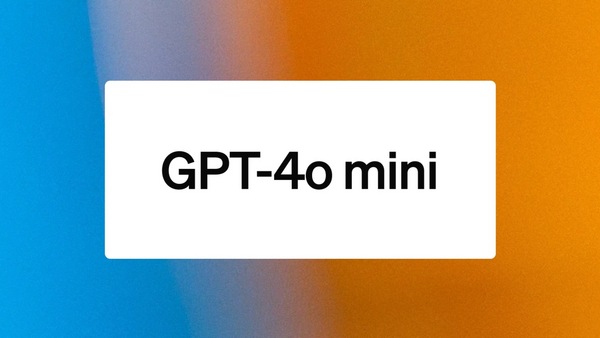
GPT 4o Mini is OpenAIs new affordable model that wont cost developers much - How it differs from larger models
8 months ago | 106 Views
OpenAI GPT 4o mini is here, marking OpenAI's attempt at capturing the low-cost small model market. Yes, it's smaller and lighter, unlike GPT 3.5 or GPT 4o. However, it manages to be more capable than GPT-3.5, according to OpenAI. This move aims to address the cost issues that developers face when using some of the other AI models. With GPT 4o, OpenAI wants the model to reach more people and make app development cheaper.
OpenAI GPT 4o: What's New
Recently, we have seen how popular some other lighter models, including Google Gemini 1.5 Flash, have become because of their cost-saving capabilities. Here, GPT 4o brings more of the same. OpenAI calls it its ?most cost-efficient small model? and claims that GPT 4o scores 82% on MMLU and even outperforms GPT 4 in chat preferences on the LMSYS leaderboard.
As for the cost, it is priced at 15 cents per million tokens and 60 cents per million output tokens. Additionally, it supports text and vision in the API, with support for text, image, video, and audio inputs coming in the near future.
Simply put, despite being a lighter model, it packs a punch and can even outclass some of the heavier models in certain categories. This is why it is set to replace GPT 3.5 Turbo moving forward.
GPT 4o: How is it Different from Larger Models?
Unlike larger models like GPT 4o or GPT-4, smaller models require much less computing power, making them cost-efficient and easily scalable. The major benefit of this approach is that smaller developers, who may not have large capital to work with, can leverage generative AI to develop their applications.
That said, the scale does differ. More ambitious models like GPT 4 and Gemini Ultra perform better overall, thanks to their superior text and question-answering abilities. The primary difference lies in the number of tokens a model is trained on.
GPT 4o Mini is now available for ChatGPT Free, Plus, and Team users, and it will expand to Enterprise users next week.
#




















